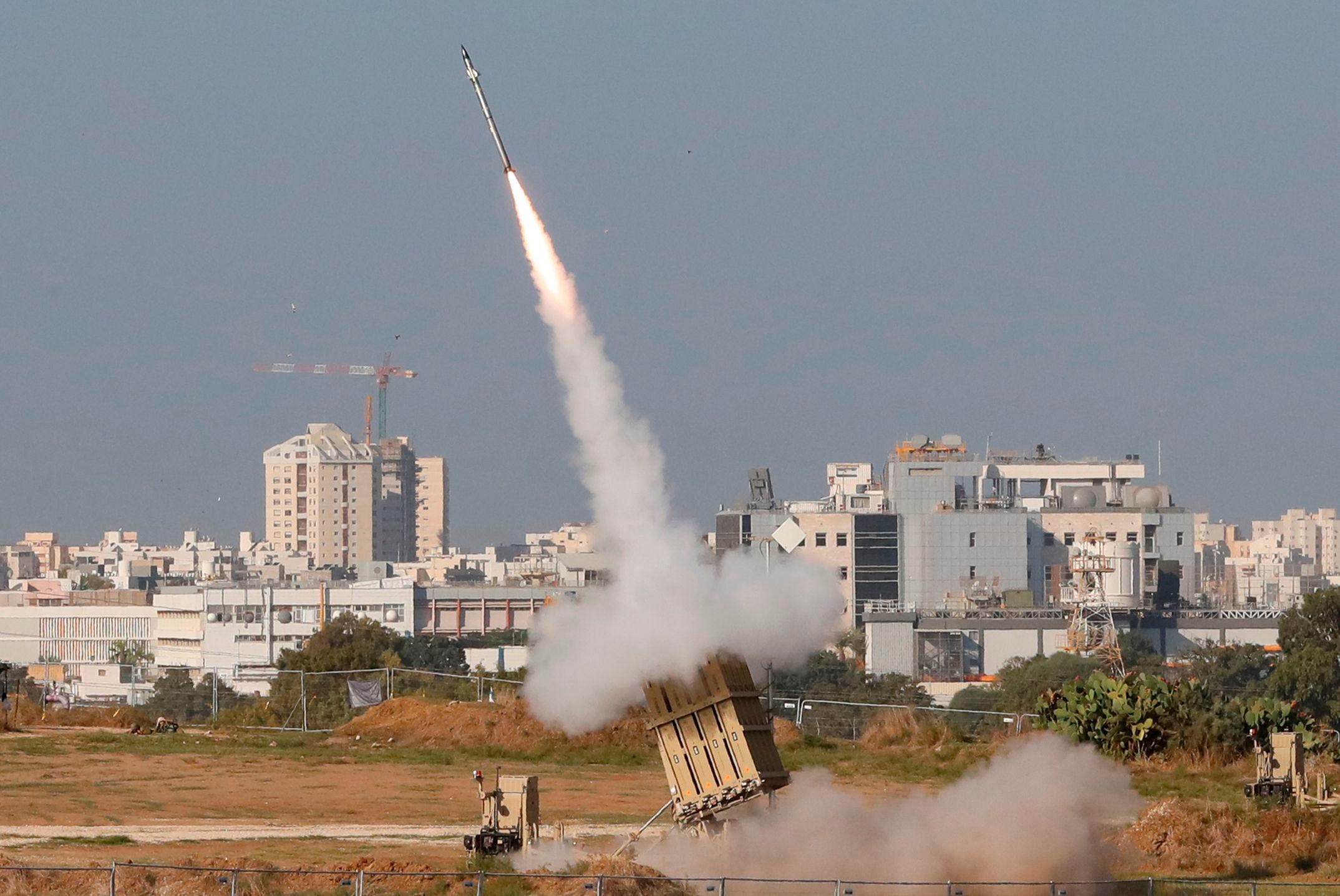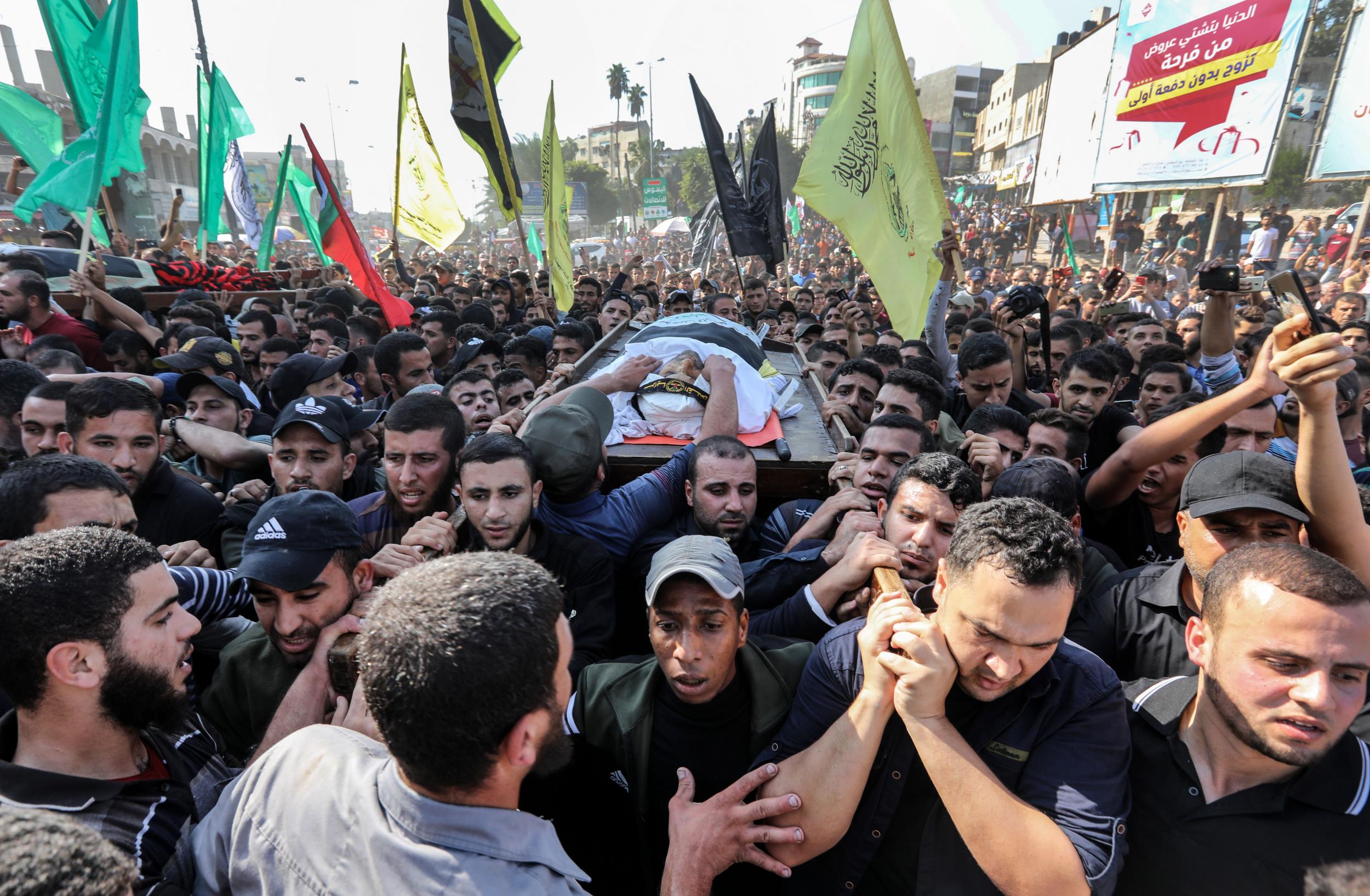24 dead in Israeli strikes on Gaza, as cross-border fighting rages for second day
Benjamin Netanyahu warns strikes on enclave will continue ‘without mercy’ if barrage of rockets into Israel does not stop

Your support helps us to tell the story
From reproductive rights to climate change to Big Tech, The Independent is on the ground when the story is developing. Whether it's investigating the financials of Elon Musk's pro-Trump PAC or producing our latest documentary, 'The A Word', which shines a light on the American women fighting for reproductive rights, we know how important it is to parse out the facts from the messaging.
At such a critical moment in US history, we need reporters on the ground. Your donation allows us to keep sending journalists to speak to both sides of the story.
The Independent is trusted by Americans across the entire political spectrum. And unlike many other quality news outlets, we choose not to lock Americans out of our reporting and analysis with paywalls. We believe quality journalism should be available to everyone, paid for by those who can afford it.
Your support makes all the difference.At least 24 people have been killed in Israeli strikes on Gaza, while Palestinian fighters fired hundreds of rockets into Israel, as a ferocious cross-border conflict stretched into a second day.
Rockets rained down on southern and central Israel sending civilians scrambling for bomb shelters, while in Gaza airstrikes eviscerated whole buildings as the fighting showed no signs of waning.
Gaza’s health ministry officials said in total 24 had been killed including three children, and over 70 had been wounded, since the violence erupted on Tuesday after an Israeli airstrike killed a senior Islamic Jihad commander accused of masterminding recent attacks.
Sources within the besieged strip told The Independent that of the 24 dead, at least 13 were fighters.
The Israeli military said that militants had fired more than 250 rockets at Israel, with rocket sirens sounding as far north as Tel Aviv and Beit Shemesh, near Jerusalem.
There were no reported deaths in Israel, due to Israel’s powerful Iron Dome defence system which the military said intercepted some 90 per cent of the projectiles.
However, a few homes sustained direct hits and most of the country has been was brought to a standstill, with schools closed and large gatherings banned.
The fighting was triggered by Israel’s targeting of Baha Abu al-Ata, a north Gaza commander in the Iran-backed Islamic Jihad militant group, who was killed in an airstrike at dawn on Tuesday, alongside his wife.
At the same time, another strike attributed to Israel targeted a senior Islamic Jihad commander at his home in Damascus, Syria.
The targeted strikes marked a new surge in the open warfare between Israel and Iranian proxies in the region.
Islamic Jihad’s senior leader Ziad al-Nakhala said that the killing of Abu al-Ata “crossed all red lines”, and vowed that his fighters “are going to war”.
Hamas, the militant group that runs the 25-mile long strip, has so far supported Islamic Jihad’s response verbally but kept out of the fighting, likely fearing the devastation of a protracted conflict.
Hazem Qassem, a Hamas spokesman, told The Independent fighters in Gaza did not want a war but were forced to respond to the “aggression”.
Egyptian officials have stepped up efforts to mediate between the warring sides. Meanwhile Nickolay Mladenov, the UN’s Middle East Envoy, landed in Cairo from Tel Aviv for talks.
Israeli Prime Minister Benjamin Netanyahu said the operation was initiated by the military and was approved by the cabinet ten days in advance.
On Wednesday he vowed that Israel would continue to target Islamic Jihad members in Gaza as long as rocket fire continues.
“They know we will continue to strike them without mercy,” Mr Netanyahu said in a special cabinet meeting. “They have one choice: either stop these attacks or absorb more and more blows.”
Israel’s new defence minister Naftali Bennett echoed the threat.
“Whoever plans to harm us during the day, will never be safe to make it through the night,’ Mr Bennett said.
Jonathan Conricus, an Israeli military spokesman, said the army was trying to limit its activities to Islamic Jihad military targets in the hope of keeping Hamas on the sidelines and preventing a serious escalation.
“However, it’s very clear that if there will be Israeli casualties, the situation would change drastically and we would be forced to respond in a different manner,” he said.
In Gaza, Palestinian civilians caught in the crossfire said they felt “trapped in an endless cycle of violence and misery” caused by Israel, as well as a power struggle between Islamic Jihad and Hamas.
“We are condemned to live in these unbearable circumstances. Right now the situation is unpredictable,” said Mamoud, 31, from central Gaza.
He said that Islamic Jihad was trying to prove they were the “guardians of resistance” against Israel and not tarnished like Hamas is by political negotiations.
“It feels like they are trying to replace the existing leadership by winning the support and sympathy of the people in Gaza, we feel stuck in the middle,” he added.
While Mr Netanyahu’s decision to take out Abu Al-Ata was widely welcomed in Israel, some opposition figures suggested the timing was political and designed to help bolster the prime minister’s popularity.

Mr Netanyahu heads up a caretaker government and is struggling to cling on to power following two inconclusive general elections.
His chief challenger, former military chief Benny Gantz, is currently trying to build a coalition government of his own and has just a week left to secure enough support from party allies.
Mr Gantz said he had been briefed on the airstrikes in advance, calling it “the right decision”, and was updated on developments later.
But a successful military operation could help the embattled prime minister stay in office, particularly as he will find out in the coming weeks whether the country’s attorney general indicts him across three corruption charges.
Join our commenting forum
Join thought-provoking conversations, follow other Independent readers and see their replies
Comments